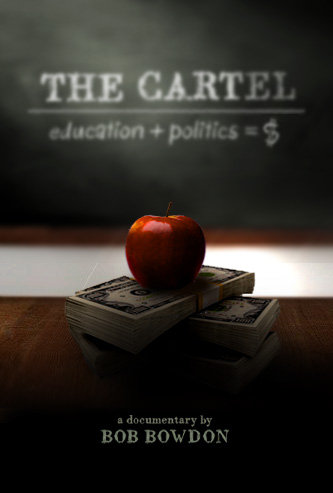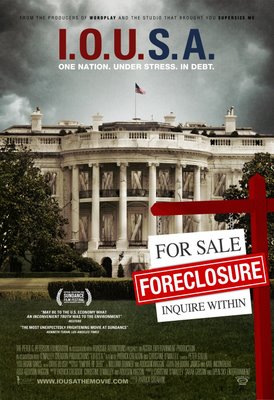 I went to see “The Cartel” at The Peoria Theater over the weekend (it’s playing through Sept. 16). From a technical standpoint, I was immediately disappointed that it was a DVD played over an LCD projector. When I go to the theater, I expect to see an actual film. I recognize that many films today use digital cinematography, but 4K or even 2K digital film resolution is a far cry from a standard-def TV signal output to an LCD projector.
I went to see “The Cartel” at The Peoria Theater over the weekend (it’s playing through Sept. 16). From a technical standpoint, I was immediately disappointed that it was a DVD played over an LCD projector. When I go to the theater, I expect to see an actual film. I recognize that many films today use digital cinematography, but 4K or even 2K digital film resolution is a far cry from a standard-def TV signal output to an LCD projector.
But leaving aside that pet peeve and getting into the actual content, “The Cartel” breaks no new ground. You’ll find the usual complaints against public education in this country — and the usual solutions. Some critiques are better than others. Teachers unions and tenure are criticized for protecting bad teachers and not adequately rewarding good teachers (good critique). Top-heavy administration and patronage hiring are blamed for keeping money away from the classroom (good critique). One of the interviewees claims there’s an inverse correlation between the quality of the school district and the number of luxury cars parked in the administration lot (ridiculous critique).
The film focused almost exclusively on New Jersey public schools, but the filmmaker stated emphatically this wasn’t a New Jersey documentary, but rather a documentary on the entire American public school system. He apparently feels the problems in New Jersey are a perfect example of what’s wrong everywhere. By and large, that’s probably true, although earlier in the movie he had some nice things to say about Maryland public schools, so evidently not all the problems addressed in the film are universal.
As for solutions, there seemed to be an implication that teachers unions have to be busted. But the most overt solution presented was school vouchers. A good part of the film was spent presenting and defending the use of vouchers. He deals head-on with the usual criticisms of voucher systems, and steadfastly defends the redeeming power of free-market forces (if kids get vouchers, the free market will create lots of high-quality private schools, the public school system will improve because they’ll want to compete with the private schools, etc.).
From a film-making standpoint, I thought the music and graphics were good, as was the editing. The movie is broken up into chapters, and each chapter forms a cohesive unit that is well-put-together and keeps your interest. However, the chapters don’t feel like they tell a story when put together. They feel more like discrete issues presented in no particular order. In other words, there’s not a sense of flow to the film. While most of the film was well-argued (whether you agreed with the arguments or not), some parts of the film felt a little too heavy-handed and propaganda-ish.
All in all, I would recommend seeing this documentary. I think it would make a good jumping-off point for discussion on the issues surrounding public education.икони

 I attended a movie at the recently established
I attended a movie at the recently established